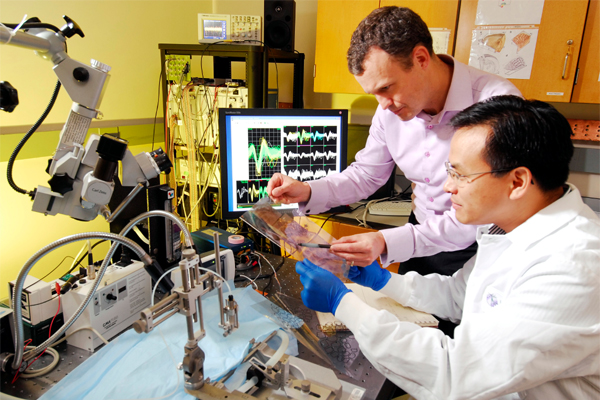



|
Tweet
Pin
It
|
To become a Biomedical Engineer, one should hold a Bachelor's degree in Biomedical Engineering (B.E./ B.Tech in BME). The basic eligibility criteria for a B.E is higher secondary or its equivalent examination in the science stream. The course is of 4 years duration and the candidates have to appear for the entrance examination conducted by the respective institution.
After +2, one can directly do B.E. in Biomedical Engineering, Or B.E in other branches of engineering such as Electrical Engineering, Mechanical Engineering, Computer Engineering, Electronics Engineering or Chemical Engineering and then become a Bio medical professional by completing a postgraduate course in Biomedical engineering. Otherwise, one can do B.E in any branch of Engineering and go for a postgraduate course in Medical Technology, which is considered equivalent to a postgraduate course in Biomedical Engineering. One could also take up this career after completing an MBBS degree and then opt for a postgraduate degree in Biomedical Engineering/ Medical Engineering/ Medical Technology.
A flair for research coupled with excellent academic records enables a candidate to obtain a doctorate degree from India or abroad.
Course Content
The main objective of Biomedical Engineering is to bring an improvement in the overall quality of healthcare. A course in Bio Medical engineering includes study of biology, chemistry, physics, calculus, biotech, principles of design, materials science, biomechanics and life sciences. The course enables a candidate to gain technical expertise in biology and medicine simultaneously and contribute effectively in the development and improvement of healthcare solutions. Biomedical engineers apply the concepts of biology, physics as well as chemistry to develop products and devices for diagnosis and treatment
Personal skill:
A Biomedical professional should be a good engineer and have aptitude for life science systems as well as terminology. They must have a sound knowledge in the basic engineering field. Good communication skills both written and verbal and a keen interest in biology as well as mathematics is a must. Ability to work as part of a team, creativity, an analytical bend of mind are some of the other personal skills counted for this career. They must have exceptional skills in observation, concentration, investigation, critical thinking and record keeping. Since the medical technology is changing so fast, it is very important to keep abreast of this changing technology. So the candidate should be dexterous and alert. Administrative skills, computer knowledge and high-level software development skills will be an added advantage.
Find it Useful ? Help Others by Sharing Online
Comments and Discussions |
Related
Career Options
|
|||
|
|